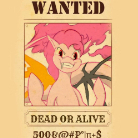gaming Casual And Competitive Segregation
-
Similar Content
-
- 12,549 replies
- 709,385 views
-
- 0 replies
- 1,268 views
-
private Surviving The Competition (1x1 with Dynamo Pad) 1 2 3
By Ragland Tiger,
- 57 replies
- 3,076 views
-
- 84 replies
- 5,319 views
-
- 0 replies
- 225 views
-
-
Recently Browsing 0 members
- No registered users viewing this page.








Recommended Posts
Create an account or sign in to comment
You need to be a member in order to leave a comment
Create an account
Sign up for a new account in our community. It's easy!
Join the herd!Sign in
Already have an account? Sign in here.
Sign In Now